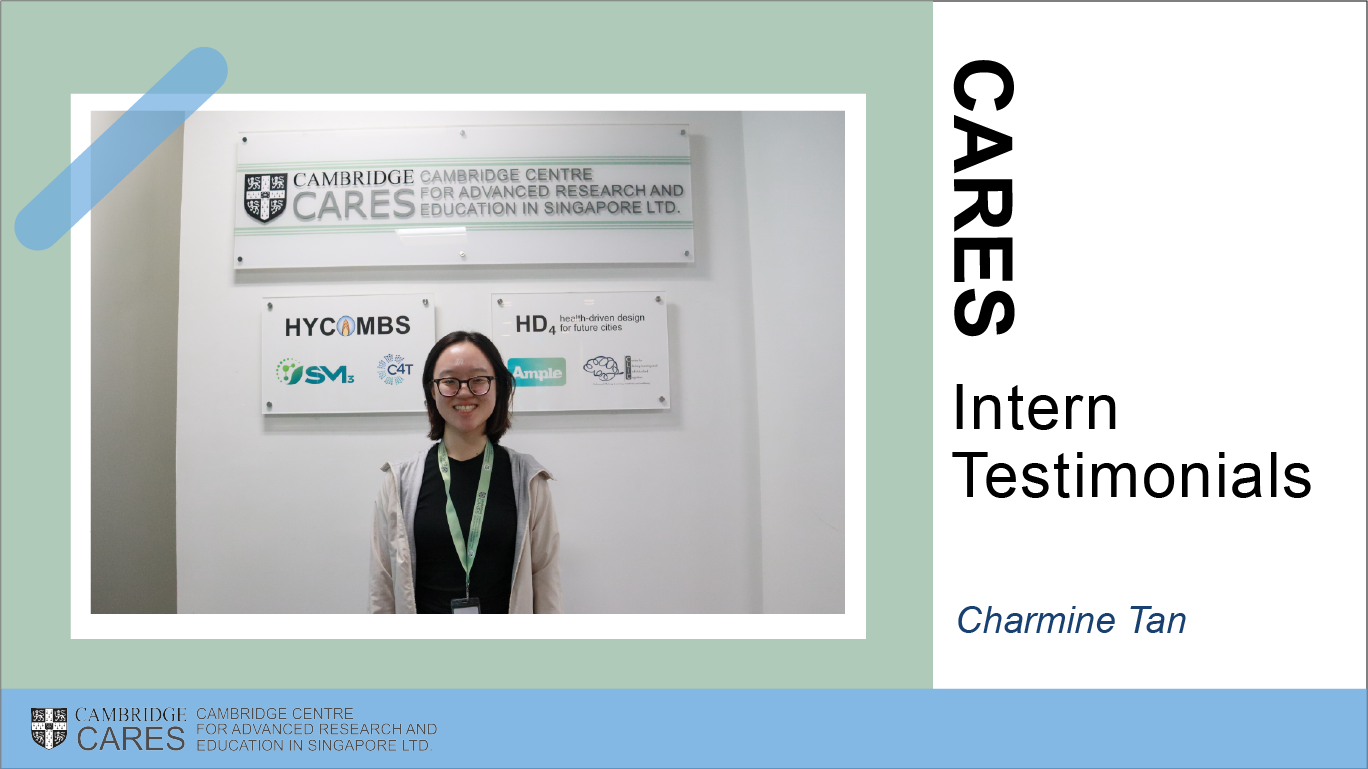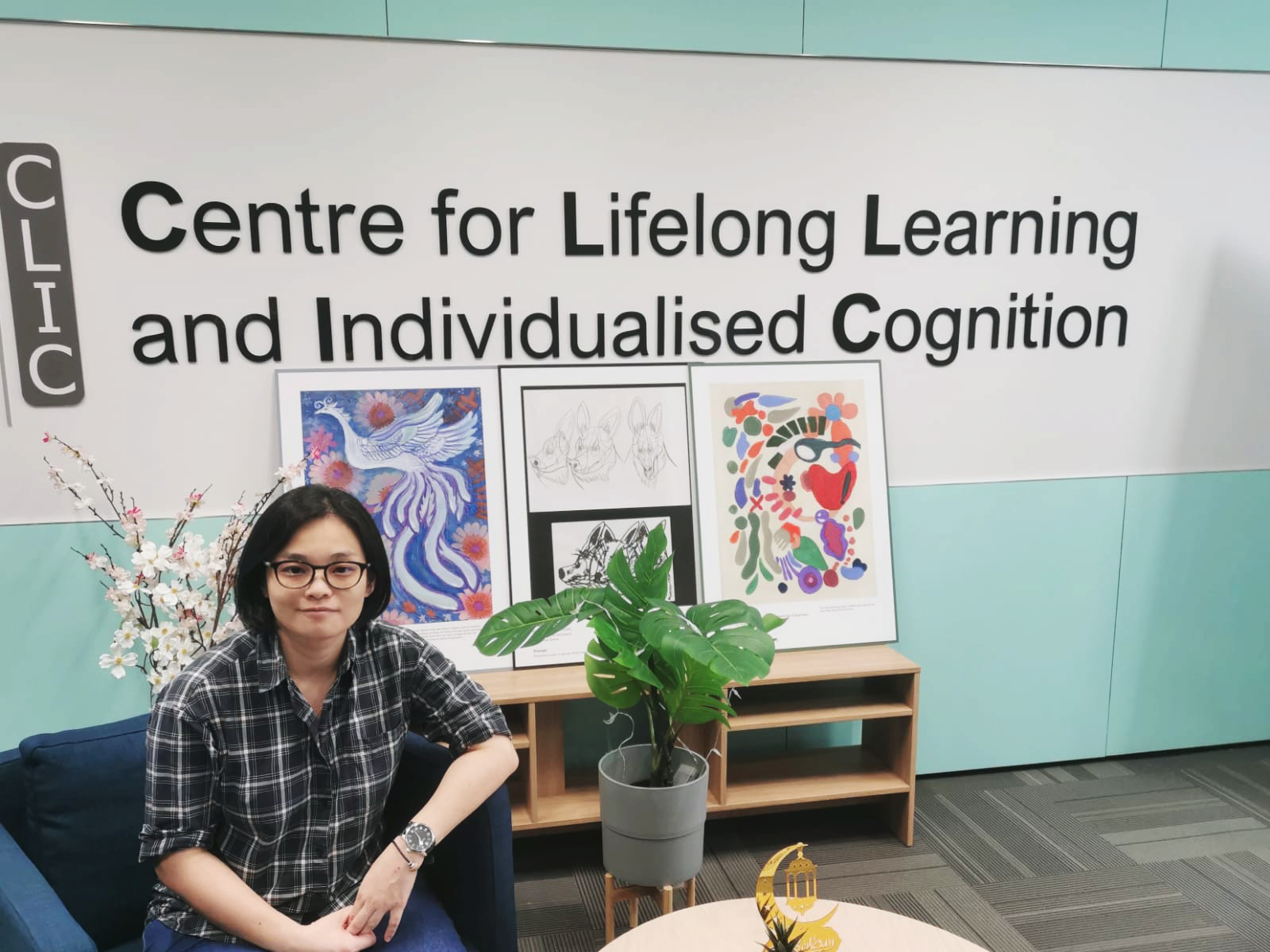A new research programme focused on improving support for lifelong learning and cognitive agility opened on 1 October 2020 in Singapore. The Centre for Lifelong Learning and Individualised Cognition (CLIC) is a collaboration between the University of Cambridge and the Nanyang Technological University, Singapore, and is funded by Singapore’s National Research Foundation.
Cultivating new skills is a lifelong process that requires cognitive flexibility, yet there is currently a gap in evidence-based training programmes that can effectively support and promote this way of learning throughout people’s lives.
Cognitive flexibility goes far beyond conventional IQ; it is the essential capacity for responding to the fluctuating events of the modern world. It underlies adaptive coping to change, and also the generation of innovative, creative thinking.
Trevor Robbins, Professor of Cognitive Neuroscience Psychology in the University of Cambridge’s Department of Psychology and a senior academic advisor to the programme, said: “Understanding the psychological basis of cognitive flexibility and its basis in the brain will have enormous societal benefits, with educational, as well as clinical, impact.”
He added: “This novel and original collaborative programme by two leading Universities will enhance the science of learning by innovative interventions and methods, for training cognitive flexibility over the life span.”
The research programme will be co-led by Zoe Kourtzi, Professor of Experimental Psychology in Cambridge’s Department of Psychology, and Annabel Chen, Professor of Psychology and Director for the Centre for Research and Development in Learning (CRADLE) at NTU. Involving researchers in psychology, neuroscience, linguistics and education, CLIC will explore cross-disciplinary ways to develop innovative research in the science of learning. The ultimate goal is to translate these research findings into an integrated model of learning that can be applied in the real world, improving cognitive flexibility across the life span.
Research will focus on four life stages – early years, adolescence, young adults and middle age – when flexible behaviour is critical for coping with changing circumstances. During these periods the brain undergoes neural changes such as early maturation, restructuring or resilience to decline, presenting important opportunities for intervention.
NTU Senior Vice President (Research), Professor Lam Khin Yong said: “The cross-disciplinary collaboration between researchers from NTU Singapore and Cambridge University is expected to have wide-ranging impact on workers, as technology and globalisation change the nature of labour markets worldwide.”
He added: “The ability to develop and master new skills at the workplace is becoming increasingly pressing globally. Singapore’s nationwide SkillsFuture programme, for example, gives opportunities for people to develop their fullest potential throughout life. Yet, we know that differences in individual cognitive functions can affect learning and performance. This is where research in the Science of Learning can play a key role in enhancing educational outcomes and practice. The new programme will support the country’s drive in helping the workforce prepare for the digital economy, as businesses turn to automation.”
Professor Annabel Chen said: “This is an exciting development for research in the Science of Learning. We have been working closely with colleagues from Cambridge, and tapping into expertise across NTU, including the College of Humanities, Arts and Social Sciences, Nanyang Business School, National Institute of Education, Lee Kong Chian School of Medicine and College of Engineering to develop the CLIC programme.”
She added: “This development complements the Science of Learning Initiative in the Centre of Research and Development in Learning (CRADLE), launched by NTU in 2015. With this multidisciplinary effort and input from the Ministry of Education and SkillsFuture Singapore, we believe our programme will be able to provide insights and translatable solutions for the Future of Learning and Economy in Singapore and beyond.”
The collaboration was brought together through the presence of the University of Cambridge’s first overseas research centre in Singapore, the Centre for Advanced Research and Education in Singapore Ltd (CARES). CARES was established in 2013 under the Campus for Research Excellence and Technological Enterprise (CREATE) – a collection of 15 joint research programmes between local universities and top overseas institutions funded by Singapore’s National Research Foundation (NRF). The Centre hosts several research programmes, most of which involve NTU and focus on the decarbonisation of Singapore’s chemical industry.
The new programme on the science of learning is a novel direction for CARES and CREATE, bringing together expertise from Cambridge and Singapore to investigate new ways of helping people prepare and adapt to the rapidly changing workplace.
Alien Talk: an example of Structure Learning training
The CLIC programme will study whether training a form of learning called Structure Learning (“patterning”) produces generalisable improvements in cognitive flexibility. ‘Space Traveller’ is an example of a game developed by Professor Zoe Kourtzi’s Laboratory to improve Structure Learning.
In this game, the players navigate their rocket among planets and need to interact with alien creatures to gain more fuel for their travels. Learning to speak with aliens involves identifying a hidden structure in a sequence of symbols that the aliens produce and deciding with which symbol to respond back. Deciphering this alien language requires that the players are cognitively flexible to crack an unknown code. If the players are correct and communication is established they receive fuel to keep exploring the galaxy. Looking into the players’ responses helps us understand how the brain works flexibly to extract complex structure in our environments that is key to our communications and interactions.
Find out more about the CLIC project here: https://www.cares.cam.ac.uk/research/clic/
About Nanyang Technological University, Singapore
A research-intensive public university, Nanyang Technological University, Singapore (NTU Singapore) has 33,000 undergraduate and postgraduate students in the Engineering, Business, Science, Humanities, Arts, & Social Sciences, and Graduate colleges. It also has a medical school, the Lee Kong Chian School of Medicine, established jointly with Imperial College London.
NTU is also home to world-renowned autonomous institutes – the National Institute of Education, S Rajaratnam School of International Studies, Earth Observatory of Singapore, and Singapore Centre for Environmental Life Sciences Engineering – and various leading research centres such as the Nanyang Environment & Water Research Institute (NEWRI) and Energy Research Institute @ NTU (ERI@N).
Ranked amongst the world’s top universities by QS, NTU has also been named the world’s top young university for the last seven years. The University’s main campus is frequently listed among the Top 15 most beautiful university campuses in the world and it has 57 Green Mark-certified (equivalent to LEED-certified) building projects, of which 95% are certified Green Mark Platinum. Apart from its main campus, NTU also has a campus in Singapore’s healthcare district.
Under the NTU Smart Campus vision, the University harnesses the power of digital technology and tech-enabled solutions to support better learning and living experiences, the discovery of new knowledge, and the sustainability of resources.
For more information, visit www.ntu.edu.sg
About National Research Foundation Singapore
The National Research Foundation Singapore (NRF) is a department within the Prime Minister’s Office. The NRF sets the national direction for research, innovation and enterprise (RIE) in Singapore. It seeks to invest in science, technology and engineering, build up the technological capacity of our companies, encourage innovation by industry to exploit new opportunities that drive economic growth, and facilitate public-private partnerships to address national challenges.
Under RIE2020, NRF is committed to create greater value in Singapore from our investment in research, innovation and enterprise through 1) closer integration of research thrusts, 2) stronger dynamic towards the best teams and ideas, 3) sharper focus on value creation, and 4) better optimised RIE manpower.
For more information, visit www.nrf.gov.sg/RIE2020
About CREATE
The Campus for Research Excellence and Technological Enterprise (CREATE) was set up by the National Research Foundation Singapore in 2007 as an international campus to forge partnerships between Singapore’s universities/research institutions and leading overseas research institutions. CREATE provides a platform to attract top-notch talent from all over the world to conduct their research in Singapore. Research at CREATE is highly interdisciplinary, and addresses large and important problems, especially those that are best conducted in or from Singapore.
Today, researchers from nine overseas partner universities – Massachusetts Institute of Technology (MIT), Swiss Federal Institute of Technology Zurich (ETH Zurich), University of California Berkeley (UC Berkeley), Cambridge University, Technical University of Munich (TUM), Hebrew University of Jerusalem (HUJ), Shanghai Jiao Tong University, University of Illinois at Urbana-Champaign and the Centre National de la Recherche Scientifique (CNRS) – are co-located in CREATE, where they work with researchers from the National University of Singapore (NUS), Nanyang Technological University (NTU), Singapore Management University (SMU) and Singapore University of Technology and Design (SUTD) on several interdisciplinary research programmes.
For more information, visit https://www.create.edu.sg/


